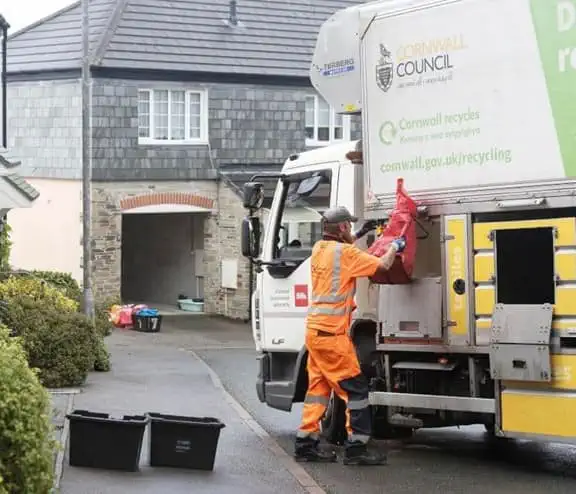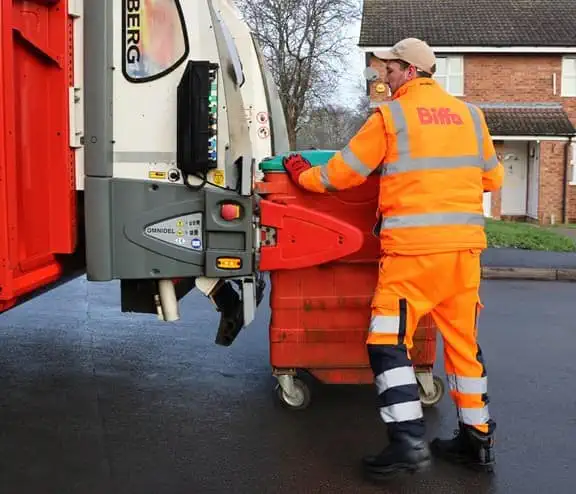
Transforming Cornwall's recycling services for Simpler Recycling
Biffa partnered with Cornwall Council and Suez to implement a new waste management system in the region, introducing weekly food waste collections and enhancing existing recycling services.
Covering 290,000 households, the project was one of the most extensive of its kind, leading to increased recycling rates - while ensuring that Cornwall become compliant with the new Simpler Recycling legislation ahead of implementation in March 2026.
The Challenge
By transforming its household waste and recycling services, Cornwall Council aimed to:
- Increase recycling rates across the region, moving to a top quartile performer.
- Reduce residual waste and litter.
- Comply with the new Simpler Recycling legislation.
- Drive behavioural change and improve service performance.
Cornwall previously provided unlimited weekly residual waste sack collections and fortnightly recycling. Changing the county’s waste management system at this scale required careful planning, operational changes, and community engagement to ensure a smooth transition.
The Solution
To support Cornwall Council's goals, Biffa helped the council implement a new, efficient, and cost-effective collection system.
Key changes included:
The fortnightly recycling collections remained the same with separated paper, card, plastic containers, metal, and glass being collected every two weeks.
Service Implementation
Biffa worked in partnership with the Council to redesign and implement Cornwall’s new waste collection system, covering over 290,000 households. The close collaboration with Cornwall Council and Suez – which provides the treatment and processing facilities - ensured a seamless integration of the new service and compliance with Simpler Recycling legislation.
The new service rollout included:
The rollout was phased across the five depots between January 2024 and March 2025. Each phase lasted 11 to 14 weeks, enabling real-time adjustments throughout the new service implementation and effective management of residents’ demand.
Four waste transfer stations and materials recycling facilities (MRFs) were modernised by the Council and Suez to accommodate food waste and increased recycling. Additionally, a new integrated transfer station and MRF is being built to prepare Cornwall's waste infrastructure for future growth in recycling and food waste.
As the delivery points were also being upgraded and expanded, these changes were addressed through flexible planning and teamwork, with temporary routes and delivery points set up to manage this together.
Results
The new waste management system has already delivered significant environmental and operational benefits.
Conclusion
Biffa's successful delivery of the new waste collection system in Cornwall demonstrates its ability to manage large-scale, complex end-to-end service transformations that provide environmental and operational benefits. Through a phased collaborative rollout, Biffa helped Cornwall Council in introducing weekly food waste collections and implementing a more efficient and cost-effective service that complies with upcoming Simpler Recycling legislation and improves recycling performance. Community involvement was central to the project's success. Biffa and Cornwall Council engaged with residents to make sure they felt confident and informed about the new system, resulting in a smoother transition and a more sustainable way of managing waste across the region. As a trusted partner to local authorities, Biffa continues to support clients in meeting regulatory targets, reducing environmental impact, and building future-proof and cost-effective waste management systems.
